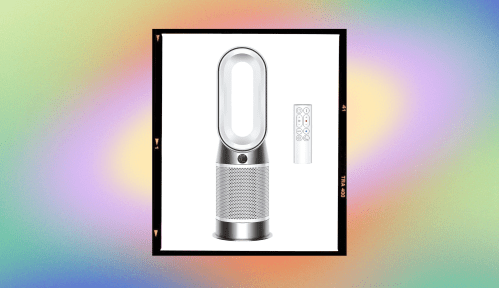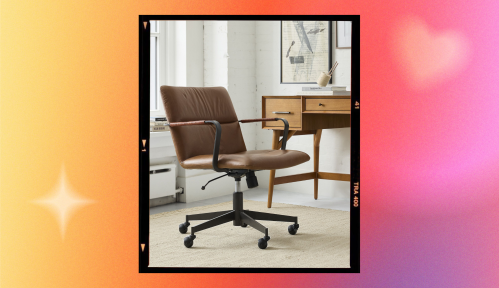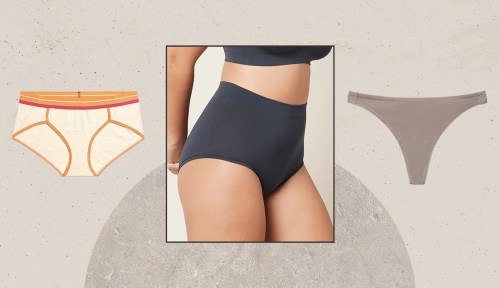Our editors independently select these products. Making a purchase through our links may earn Well+Good a commission
From purifiers to humidifiers, here’s your cheat sheet on what *actually* clears the air
The health benefits of an air purifier and air humidifier differ greatly, so when should you purchase each? Here, I break it down for you.
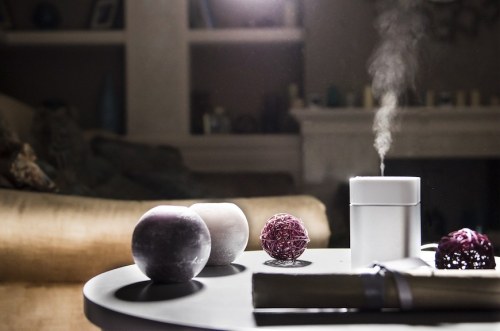
What’s more fundamental than the air you breathe? Literally nothing. And yet you don’t really pay much attention to what and how you’re breathing when you’re at home, until things go wrong.
During winter months, that often means repeated run-ins with the flu and cold after cold, or at least months of dried-out sinuses and sniffling. During the spring, it means runny noses and endless sneezing as pollen starts to activate those allergies.
When you think about germs, you also often think about picking them up while you’re out and about and then bringing them home, but the fact is, the air in our homes—especially during colder months when the windows are locked shut—can be pretty polluted and a haven for germs.
So, maybe an air purifier is in order? Or maybe you heard a humidifier will banish the flu from your kids’ bedroom? And can anything techy help? (Spoiler: yes.) Let’s take a deep breath while I break down the difference between the two popular devices and health claims. Keep scrolling to figure out which healthy home gadget you need in which situation.
Air purifiers
Air purifiers, the most popular of which are HEPA filters, do just what it sounds like: capture “stuff” that’s floating around to make the air you breathe more “pure.” That includes dust, pollen, and pet dander. But overall, not much reliable research exists on how air purifiers will actually improve your health, especially since there are so many different kinds and other factors affect their efficacy, such as the model, regular maintenance, and what the heck is in your air.
The best evidence is for asthma sufferers. Several studies have shown significant improvements—like easier breathing, less stuffy noses, and reduced need for treatment—for both children and adults with asthma. (Many of the studies were done on people with pets, by the way.)
When it comes to allergies, many allergists do recommend air purifyers because some people report easier breathing after using them, but they do so while also acknowledging their limitations: “Can’t hurt, may be helpful,” is how a top expert put it to the New York Times.
A high-quality HEPA filter like the Alen BreatheSmart will at least eliminate allergens like dust, pollen, and pet dander which will definitely help you breathe easier. The Airmega 400 can reportedly clean the air in up to 1,500 square feet of space, has a smart mode so it adjusts the filtration speed depending on how clean the room already is.
And what about capturing cold and flu germs? Bacteria, mold, and viruses are mostly too small for HEPA filters to grab. Some old-school electronic filters claimed to kill germs using ozone, but they quickly fell out of favor because ozone itself is a lung irritant (not a good trade, if you ask me).
There are, however, new models that claim to do some pretty amazing stuff. The Molekule is a techy purifier that uses free radicals to oxidize pollutants in the air and claims to be “able to destroy pollutants 1,000 times smaller than traditional HEPA filters.” Research the company provides shows its purifier is effective at capturing and destroying bacteria, viruses, black mold, and even volatile organic compounds (like chemicals released from paint or cleaning supplies). It’s pricey, but with all those benefits, it might be the difference between you sick and healthy, and you can’t put a price on that.
Pro tip: experts say one of the best ways to purify air is super simple: Open your windows as often as possible.
Shop purifiers

Alen BreatheSmart $599
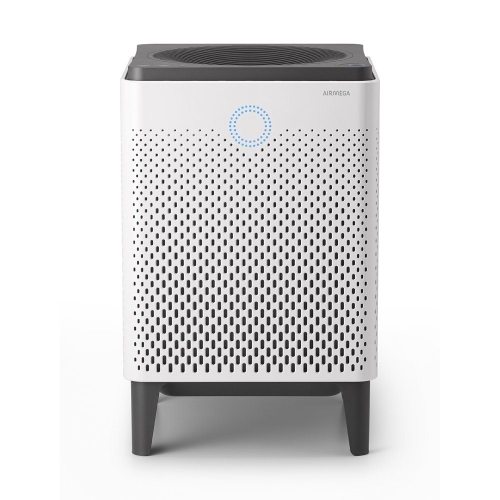
Airmega 400 $496
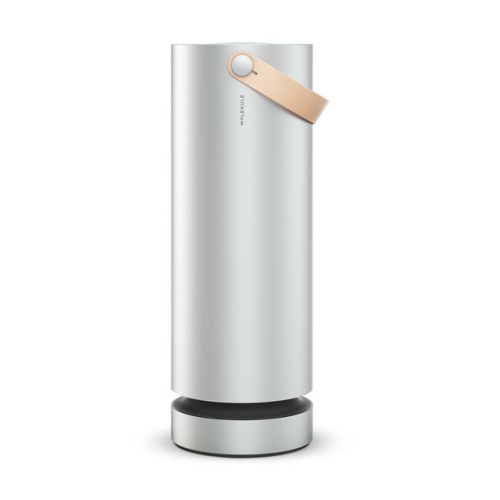
Molekule $799
Humidifiers
Humidifiers, on the other hand, don’t clean the air; they just moisten it. That simple job can actually impact your health in big ways during winter months, when inside air can be particularly dry.
If you’ve ever woken up feeling like your nose and throat were lined with sandpaper, you know how dry air can affect your respiratory system. Humidifiers can help keep your nasal passages and throat moist, which can help your sinuses resist bacteria and viruses and can reduce symptoms like coughing and sneezing if you get a cold. More moisture in the air can also help prevent itchy, dry skin, which often comes with the winter months.
The most impressive benefit? Research has shown humidifiers can actually help create an environment in which its harder for flu viruses to survive.
The key is making sure it doesn’t get too humid (40 to 60 percent relative humidity is ideal) and that you’re maintaining the humidifier properly, since a dirty filter or dirty water can have the opposite effects (let’s not shoot moldy water into the air, capisce?). If you choose a high-quality model like Dyson’s, it will monitor the humidity level and adjust appropriately without you even having to check and keep the water clean on its own using a super cool UV system that kills any bacteria, viruses, and mold. Levoit’s humidifier has auto-sensors as well, along with a remote control so you can turn it on or off without getting out of bed. And how cute are these Crane animal humidifiers for a nursery?
Shop humidifiers
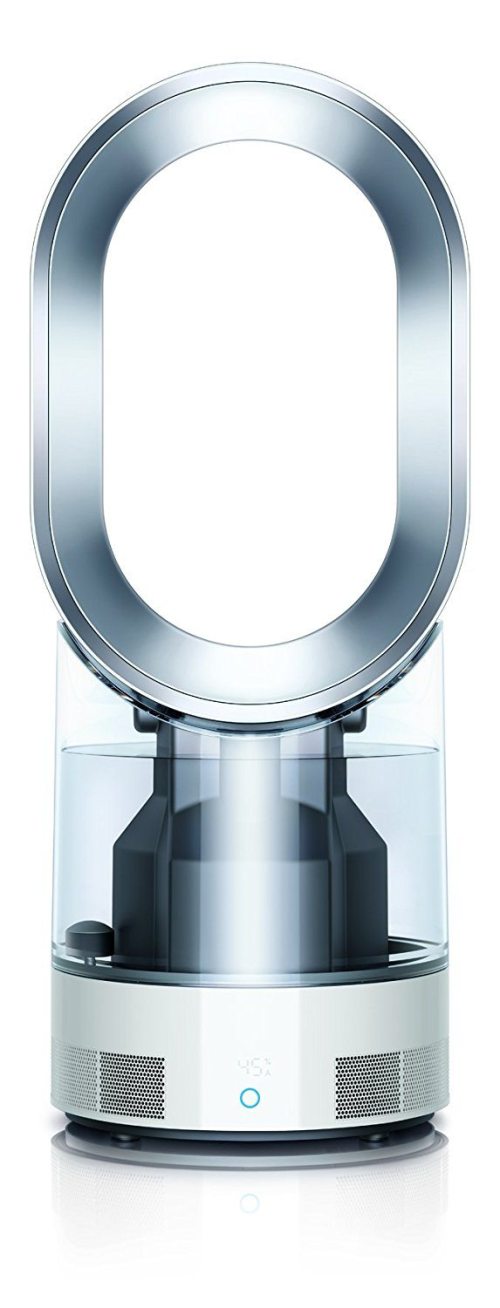
Dyson Humidifers $499
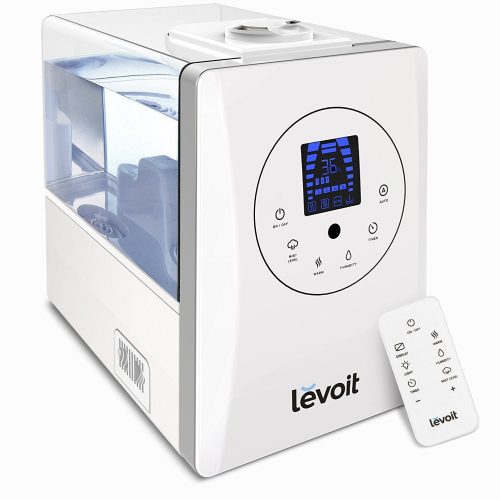
Levoit Humidifiers $90
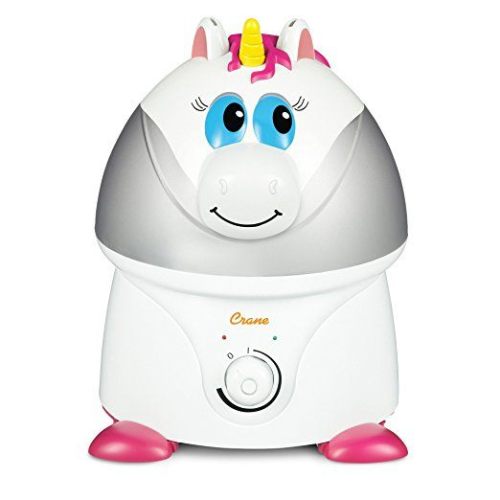
Crane Unicorn Humidifier $75
The bottom line
So, which is best for you? Consider what’s going on in your home and make choices based on your family’s symptoms and needs. If you have a pet, for example, a purifier is probably in order. If your kid’s got dried out sinuses half the year, he or she likely needs a humidifier. You can also easily have a purifier in the living room and a humidifier in the bedroom, depending on who needs what.
While you’re deciding which air-quality-improvement tool is best for you and your home, keep non-toxic living expert Sophia Gushée’s tips in mind.
Originally published on March 30, 2018. Updated on August 19, 2019.
Surprise, these two healthy home goods have big-time beauty benefits! This is why you need a purifier and humidifier for your hair and this is why you need them for your skin.
Sign up for the Well+Good SHOP Newsletter
Get exclusive deals on wellness, beauty, fitness, and food products that have been hand-picked by our editors.
Got it, you've been added to our email list.

